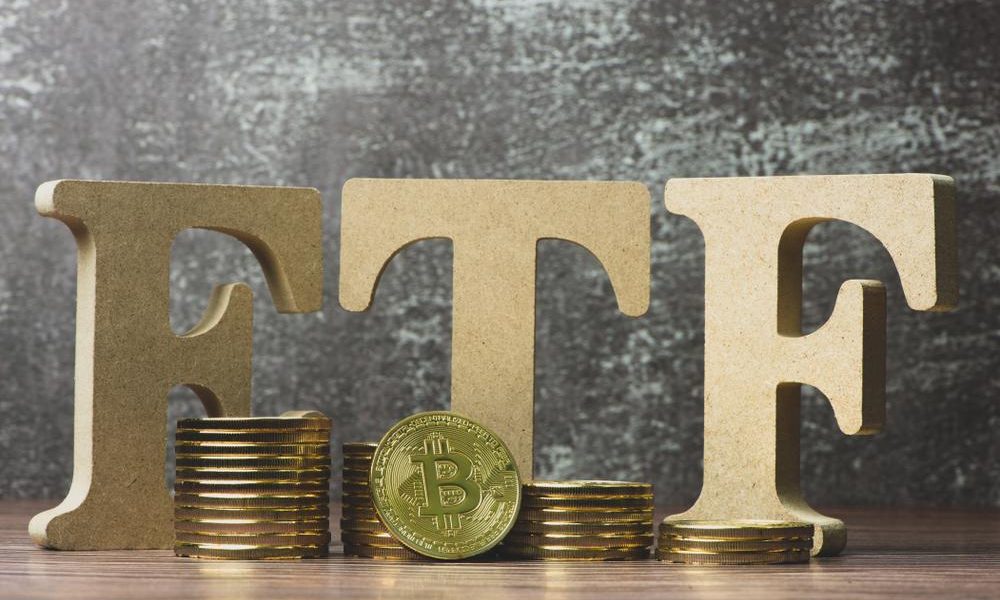BlackRock’s Bitcoin (BTC) Holdings Soar to $23.6 Billion
28.09.2024 19:00 2 min. read Alexander Zdravkov
BlackRock continues to expand its Bitcoin portfolio, reaching 363,626 BTC as of Friday, September 27.
With nearly a decade of bullish activity in the crypto space, the asset manager shows no signs of slowing down.
On September 27, BlackRock acquired an additional 1,434 BTC valued at $94.3 million, adding to its total of 5,894 BTC purchased over the last four days—equivalent to $387.68 million. A prior acquisition on September 26 of 4,460 BTC, valued at $289 million, brought its total Bitcoin holdings to 363,626 BTC, worth approximately $23.68 billion.
Lookonchain reports that BlackRock now holds 363,626 BTC, worth $23.68 billion, making it the third-largest Bitcoin holder after Satoshi Nakamoto and Binance, which holds about 550,000 BTC. As BlackRock continues to increase its Bitcoin reserves, it is quickly approaching Binance’s holdings.
BlackRock views Bitcoin as a safe haven asset. Robbie Mitchnick, the firm’s head of digital assets, emphasizes that Bitcoin is not tied to any one country’s economic situation, offering protection against risks such as currency devaluation and political instability. Mitchnick notes that while Bitcoin has experienced periods of correlation with equities, it behaves similarly to gold over the long term, with a low correlation to other assets.
This marks a significant shift for BlackRock, particularly for CEO Larry Fink, who previously dismissed Bitcoin as speculative. Now, BlackRock’s IBIT Bitcoin ETF is leading the spot BTC ETF market, with net inflows reaching $21.42 billion as of September 27, ahead of Fidelity’s $9.99 billion in its FBTC. Through IBIT, BlackRock provides institutional investors with indirect exposure to Bitcoin.
-
1
Bitcoin’s Price Closely Mirrors ETF Inflows, Not Corporate Buys
26.06.2025 11:00 2 min. read -
2
Crypto Company Abandons Bitcoin Mining to Focus Entirely on Ethereum Staking
26.06.2025 20:00 1 min. read -
3
Bitcoin Hits New All-Time High Above $112,000 as Short Squeeze and Tariffs Fuel Rally
10.07.2025 0:35 2 min. read -
4
Strategy Boosts Bitcoin Holdings to 597,325 BTC with Latest Purchase
30.06.2025 15:23 2 min. read -
5
Bitcoin ETF Inflows Hit $2.2B as Market Calms After Ceasefire
25.06.2025 17:00 1 min. read
Bitcoin Reaches $119,000 Milestone as Corporate Demand and ETF Inflows Rise
Bitcoin soared to a new all-time high above $119,000 on July 13, extending its bullish momentum on the back of institutional accumulation, shrinking exchange reserves, and technical breakout patterns.
Bitcoin Dominance Nears Key Resistance — Is Altseason Coming Next?
A major shift in the crypto cycle may be approaching as Bitcoin dominance (BTC.D) once again reaches critical long-term resistance.
Bitcoin Sparks Clash Between Mike Novogratz and Peter Schiff
Galaxy Digital CEO Mike Novogratz reignited a long-running feud with economist and gold advocate Peter Schiff after the latter criticized Биткойн yet again.
Peter Schiff Warns of Dollar Collapse, Questions Bitcoin Scarcity Model
Gold advocate Peter Schiff issued a stark warning on monetary policy and sparked fresh debate about Bitcoin’s perceived scarcity. In a pair of high-profile posts on July 12, Schiff criticized the current Fed rate stance and challenged the logic behind Bitcoin’s 21 million supply cap.
-
1
Bitcoin’s Price Closely Mirrors ETF Inflows, Not Corporate Buys
26.06.2025 11:00 2 min. read -
2
Crypto Company Abandons Bitcoin Mining to Focus Entirely on Ethereum Staking
26.06.2025 20:00 1 min. read -
3
Bitcoin Hits New All-Time High Above $112,000 as Short Squeeze and Tariffs Fuel Rally
10.07.2025 0:35 2 min. read -
4
Strategy Boosts Bitcoin Holdings to 597,325 BTC with Latest Purchase
30.06.2025 15:23 2 min. read -
5
Bitcoin ETF Inflows Hit $2.2B as Market Calms After Ceasefire
25.06.2025 17:00 1 min. read


